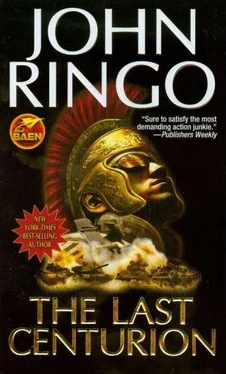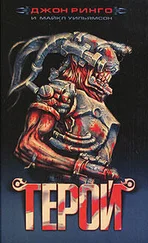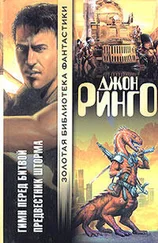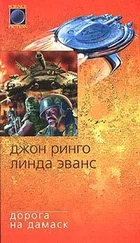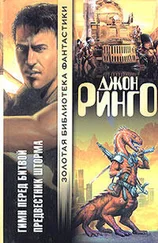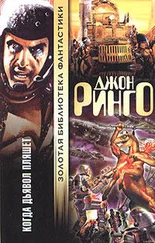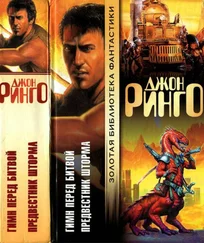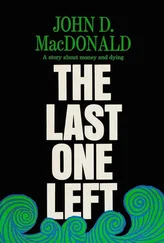Hard to believe, now, I know. But that's how we thought. That's how I thought.
Chapter Three
Three Sentences All Alike in Fuckedup'edness
That was the other part of my mostly going back to sleep. You see, I was (and am to a lesser extent) a skeptic. Global warming, resource depletion, all the rest of the mantra the left constantly used to scare us. It went in one ear and out the other. If somebody told me the sky was falling, I wouldn't look up.
This time I got hit in the head by a chunk of sky. But I wasn't the only one.
Here's what was really happening as we can see with blisteringly clear twenty-twenty hindsight.
In a town called Jungbao, a lot of people suddenly got sick. Really, really incredibly sick. Dying sick. There's all sorts of estimates. Jungbao is about the only place that people are starting to open up the mass graves to get a count. And what exactly happened might never be known. Currently, the best estimates I've found go like this:
A lot of people got sick. The local medical boss, who was a WHO reporter, contacted Beijing with his estimate that H5N1 had become human to human transmissible and had, possibly, become more lethal. He wanted to report it to the WHO. He was told to hold the fuck on.
Back then there were about a billion and a quarter Chinese under a government that was still officially Communist (more like fascist but that's another essay) and pretty repressive. China, for a lot of reasons (another essay) tended to be where major illnesses first broke out. And the Chinese government found this embarassing.
I know. The kids who grew up in this post-Plague chilly world think that I've got to be shitting. I'm not. The Chinese government was not up on telling the WHO that bird flu was now human transmissible and that a lot of people were dying of it in Jungbao.
So what did they do? Well, as far as anyone can tell, they sent in the Army. It had orders to cordon off the area and prevent anyone from leaving. They also sent in, slowly, more doctors and "began official examination of the nature of the events in the Jungbao area." That last is from a document found in one of the offices that the historians are starting to pick over. There's just so damned much and so few experts who speak Chinese to do it at this point that the record's barely starting to firm up. But that looks like what happened.
Well, here's the thing. If you don't directly know what bird flu is like when you get it, you've got somebody who has told you the tale. If you don't know, you're a kid. (Sorry about the language. That's how soldiers are.) Probably it's been described to you by your mom or step-mom who freaks out totally when your fever goes up a single point.
But these guys had never seen it. They sent in the Army, cordoned off the area, started rounding people up for examination. And the soldiers weren't vaccinated.
Seems like a no-brainer, right? Well, the Chinese, individually, are smart as whips. Before the flu and maybe more since, those that are still alive. But their fucking government at the time? Serious fucking idiots.
Call it denial. Most of the guys running the government were old. They didn't want to admit that bird flu was breaking out and things were going to change. They didn't want foreigners poking around in their country and examining the realities of Chinese peasant life. (Which sucked then and sucks more now.) They wanted things to stay the same.
So they sent in the soldiers, who weren't vaccinated. And they got sick. And the survivors or the sick but mobile, started fleeing the area. Including some of the soldiers (maybe all of them, we're not sure).
That was about the same time we got our warning order from the Chief of Staff.
Now, things generally don't work really fast in the military. I mean, if it's a combat op, it goes really fast. But things like world-wide distribution of immunizations? I figured it would take a year.
It wasn't all that long, but it was nearly three weeks before we got our shipment. By then, the WHO was on the scene in Western China and it was getting harder and harder for the Chinese government to cover up what was, and is, the biggest disease outbreak in the history of mankind. The news media still wasn't in the area but they were reporting second- and third-hand stories of mass deaths.
And we mostly blew it off. Why? Because "if it bleeds, it leads." The twenty-four-hour news cycle had gotten so competitive that even the most minor thing in those days, say a tornado in Kansas, which is about as "irregular" as blowing your nose, suddenly became the first sign of the End of Civilization! "Tornado in Kansas! THE WORLD IS COMING TO AN END!"
Call it the "Cry Wolf" syndrome. You all know the fable. Well, the news media had predicted so many ends of civilization they were about as well regarded in that area as a guy on a street corner holding a sign saying "The End Is Coming!" (Possibly a metaphor that won't work for the younger generation since, well, street people . . . Nuff said.)
Having said that, they also sort of soft-pedaled it. Basically, they were having a hard time believing the second- and third-hand reports. The only first-hand really good sources were the WHO guys who were having a hard enough time surviving much less talking to the news media. And the WHO brass were . . . well, brass. Top officials don't say things like "Look, people, this is the fucking end, okay? Flee to the hills! I'm out of here, you can stay here and die if you want!"
Honestly, the WHO might have had a chance if the Chinese had worked with them. Might. Maybe. Probably not but . . . Alternate histories.
Anyway, the news media was getting reports of "thousands dead." But they couldn't get camera crews into the area, or even guys with pencils and papers. People were streaming out of Western China but they had to avoid the roadblocks. Which meant they weren't exactly hunting up reporters; they were trying to stay away from the soldiers who were trying to stop them and get ahead of the Plague. (Good luck on that one, sucker. NOBODY got ahead of the Plague. We're only on one fucking planet .) A few of them went to reporters but when they said "everyone in my village is dead, thousands are dead . . . " Well, if you want to run a story like "thousands dead" you need one or two of a few things. You need someone you trust to eyeball it, like one of your own reporters. Or you need a government official to say it. If even the WHO had said it, people would have believed it. The WHO, though . . . Well, they were brass. They were getting sporadic reports from their hard-core and trustworthy guys that lots and lots and lots of people were dying.
From one of the few reports the WHO has made public:
"Entered village of Kai-Ching on 28th. Village abandoned. No live personnel save myself and driver. In one-hour period counted sixty-three bodies in early stages of decomposition. Found one large grave, unable to assess contents in any reasonable time. Primary site, Pou-Chin, not allowed access."
And there's another thing. So there's one village that's got sixty-three dead people in it. That's bad, don't get me wrong. But . . . It's not thousands dead. And even looking at a map, getting more and more reports, a hundred here, fifty there . . . It was hard for anyone to truly comprehend and say "This is the Big One." Actually, they were saying that, internally, but they didn't want to panic people.
The U.S. government has their own people for assessing this stuff. CDC and the USAMRIID (United States Army Medical Research Infectious Investigations Department) and Army Medical Resource and Materiel Command are tied into the WHO like arteries are tied to veins. Many of the WHO respondents were U.S. government personnel. And they were reporting back to the U.S. (This is, by the way, one of the reasons that the Chinese didn't like WHO. Most of the respondents were government workers from one country or another and all were considered spies.) The U.S. government was getting the same reports. But then you get to "what do we do about it?"
Читать дальше
